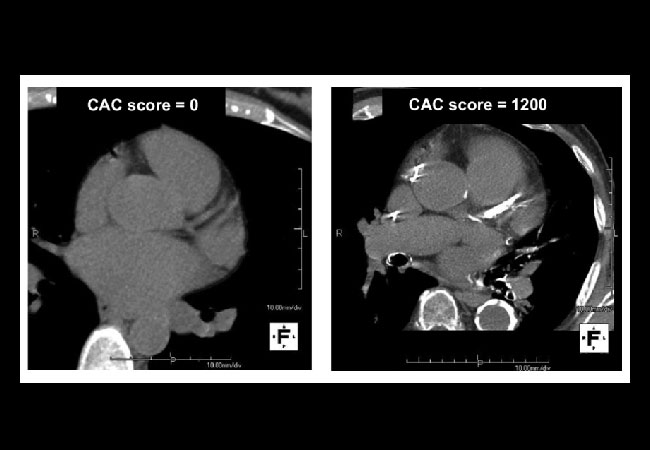- Home
- About
- Portfolio
Crush the Match – Medical School and Residency Platform
Food¢ense – Curbing Childhood Obesity and Food Waste
HealthStack – Shared and Jailed HIPAA Hosting $50
Marta Care – Let Us Help When You Can’t
MD Idea Lab – We Build Prototypes for Doctors
Nervcell – The Healthcare Web Browser
Patient Keto – Personalized Keto Medicine and Telehealth
SwipeChart – Rapid EMR Interface
Treatment Scores – Quantifying the Science of Medicine
Treatments – Diagnosed. Now What?
VIDRIO – Google Glass and EMR Interface
- Blog
- Contact
- Home
- Warp Core Health
- Blog
- CAC
- Understanding the CAC Test and Achieving a Score of 0 with Ketogenic Diet and Intermittent Fasting
Understanding the CAC Test and Achieving a Score of 0 with Ketogenic Diet and Intermittent Fasting
By Stephen Fitzmeyer, MD
Introduction:
Coronary artery calcification (CAC) test is a non-invasive test that measures the amount of calcium in the coronary arteries. The test uses a CT scanner to detect calcium deposits in the coronary arteries, which is an indication of the presence of plaque that can cause heart disease. A high score on the CAC test is associated with an increased risk of heart disease and other related conditions. However, research has shown that a combination of a ketogenic diet and intermittent fasting can help achieve a CAC score of 0, indicating optimal heart health.
CAC Test and Its Importance:
The CAC test measures the amount of calcium in the coronary arteries and is used to assess an individual’s risk of developing heart disease. The test uses a CT scanner to detect calcium deposits in the walls of the coronary arteries. These deposits are a sign of atherosclerosis, which is the buildup of plaque in the arteries that can lead to heart disease. The CAC score is a measure of the amount of calcium in the coronary arteries, and a high score indicates an increased risk of heart disease.
Achieving a CAC Score of 0 with a Ketogenic Diet and Intermittent Fasting:
Research has shown that a combination of a ketogenic diet and intermittent fasting can help achieve a CAC score of 0, indicating optimal heart health. A ketogenic diet is a high-fat, low-carbohydrate diet that promotes the use of fat as the primary source of energy. This diet has been shown to reduce the risk of heart disease by lowering triglycerides and increasing HDL cholesterol levels.
Intermittent fasting is a pattern of eating that involves periods of fasting and periods of eating. This eating pattern has been shown to improve insulin sensitivity, reduce inflammation, and lower blood pressure, all of which can contribute to optimal heart health.
Studies have shown that a combination of a ketogenic diet and intermittent fasting can help reduce the risk of heart disease and achieve a CAC score of 0. One study found that a ketogenic diet and intermittent fasting for six months resulted in a significant reduction in the CAC score in participants with high initial scores. Another study showed that a low-carbohydrate diet combined with intermittent fasting for eight weeks resulted in a significant reduction in triglycerides and an increase in HDL cholesterol levels.
Conclusion:
The CAC test is an important tool for assessing an individual’s risk of developing heart disease. However, a combination of a ketogenic diet and intermittent fasting can help achieve a CAC score of 0, indicating optimal heart health. These lifestyle changes have been shown to reduce the risk of heart disease, improve insulin sensitivity, reduce inflammation, and lower blood pressure. Therefore, incorporating a ketogenic diet and intermittent fasting into your lifestyle can lead to optimal heart health.
References:
1. Lu DY, Lu TR, Jackson NC, et al. Effects of a ketogenic diet combined with exercise on the CAC score and atherogenic index of plasma in adults with overweight and obesity. Diabetes Metab Syndr Obes. 2021;14:3105-3116. doi:10.2147/DMSO.S326587
2. Ganesan K, Habboush Y, Sultan S. Intermittent fasting: the choice for a healthier lifestyle. Cureus. 2018;10(7):e2947. doi:10.7759/cureus.2947
3. Yokoyama Y, Takachi R, Ishihara J, et al. Association between a low-carbohydrate diet and coronary artery calcification in Japanese men and women: a cross-sectional study
——
Author: Stephen Fitzmeyer, M.D.
Physician Informaticist
Founder of Patient Keto
Founder of Warp Core Health
Founder of Jax Code Academy, jaxcode.com
Connect with Dr. Stephen Fitzmeyer:
Twitter: @PatientKeto
LinkedIn: linkedin.com/in/sfitzmeyer/
Recent Posts
- Protected: Warp Core Health: Building a Custom AI Model for Transforming Healthcare
- The Intersection of Healthcare, AI, Clinical Informatics, and Machine Learning
- Accessing Siloed EMR Systems with FHIR: Connecting to Multiple EMRs
- How AI and Informatics Are Transforming Healthcare
- How AI Can Transform Healthcare Applications
Categories
- ApoB
- Artificial Intelligence
- Autophagy
- Biochemistry
- Biomedical Informatics
- Biostatistics
- Blood Glucose
- CAC
- Carbs
- CCD
- CDA
- Clinical Informatics
- Coding Bootcamp
- Coronary Artery Disease
- COVID-19
- Cybersecurity
- Data Science
- Diabetes
- Diet
- EHS
- EMR
- Epidemiology
- Evidence Based Medicine
- Fats
- FHIR
- Fiber
- Generative AI
- Global Health
- Health Administration
- Health Informatics
- Health IT
- HIPAA
- HL7
- Hyperglycemia
- Hypoglycemia
- ICD 10
- Intermittent Fasting
- Ketogenic Diet
- Machine Learning
- Macronutrients
- MCT Oil
- Metabolic Health
- Metabolic Syndrome
- Minerals
- Mitochondria
- MySQL
- Neurology
- Nutritional Ketosis
- Nutritional Neurology
- Nutritional Psychiatry
- PHP
- PHR
- Programming
- Prompt Engineering
- Proteins
- Prototypes
- Public Health
- Python
- Recipes
- Sleep Health
- Stroke
- Uric Acid
- Vegan and Vegetarians
- Vitamin D
- Vitamin K2
- Vitamins

